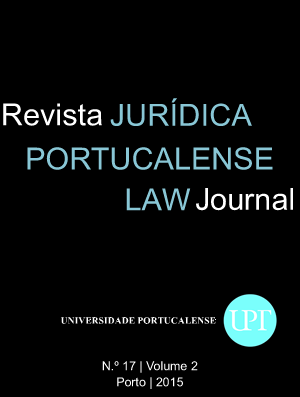The Golden Shares in Portuguese law versus Troika and European Union
Abstract
In 2011, at the height of the great global economic crisis that shook international markets and forced major changes in global political, Portugal, celebrated with the Troika, a memorandum of understanding which bound the Portuguese State to a list of measures, according with Treaty on the Functioning of the European Union and varied case law of Court of Justice of the European Union, the privileged state shareholdings in companies that pursuit private interests -Golden shares– under the risk that foreseen funds cannot be redeemed.
Like the mentality of other European countries, Portugal, and more specifically the legislature, early expressed the need to fill its "sense of ownership" in the economic and business scope, safeguarding the right of veto on important issues of companies re-privatized, imposing thus their will on behalf of the infamous "public interest", despite the state influence was not proportional to the small participation in the capital.
Downloads
Published
How to Cite
Issue
Section
License
Authors who published in the journal agree to the following terms:
- The Authors grant the Journal the right of first publication, and other non-exclusive publishing rights, licensed under the Creative Commons Attribution License which allows the sharing of work with recognition of its initial publication in this journal.
- Authors are able to take on additional contracts separately, non-exclusive distribution of the version of the paper published in this journal (ex .: publish in an institutional repository or as a chapter in a book), with an acknowledgement of its initial publication in this journal.
- Authors are permitted and encouraged to post and distribute their work online (eg .: in institutional repositories or on their website) at any point before or during the submission process, as it can lead to productive exchanges, as well as increase the impact and the citation of published work (See The Effect of Open Access).
RJP does not apply submission, publication or any other fees of any nature. Its articles are open access, with the goal of disseminating scientific knowledge and the debate of legal topics in the area of Legal Sciences.






